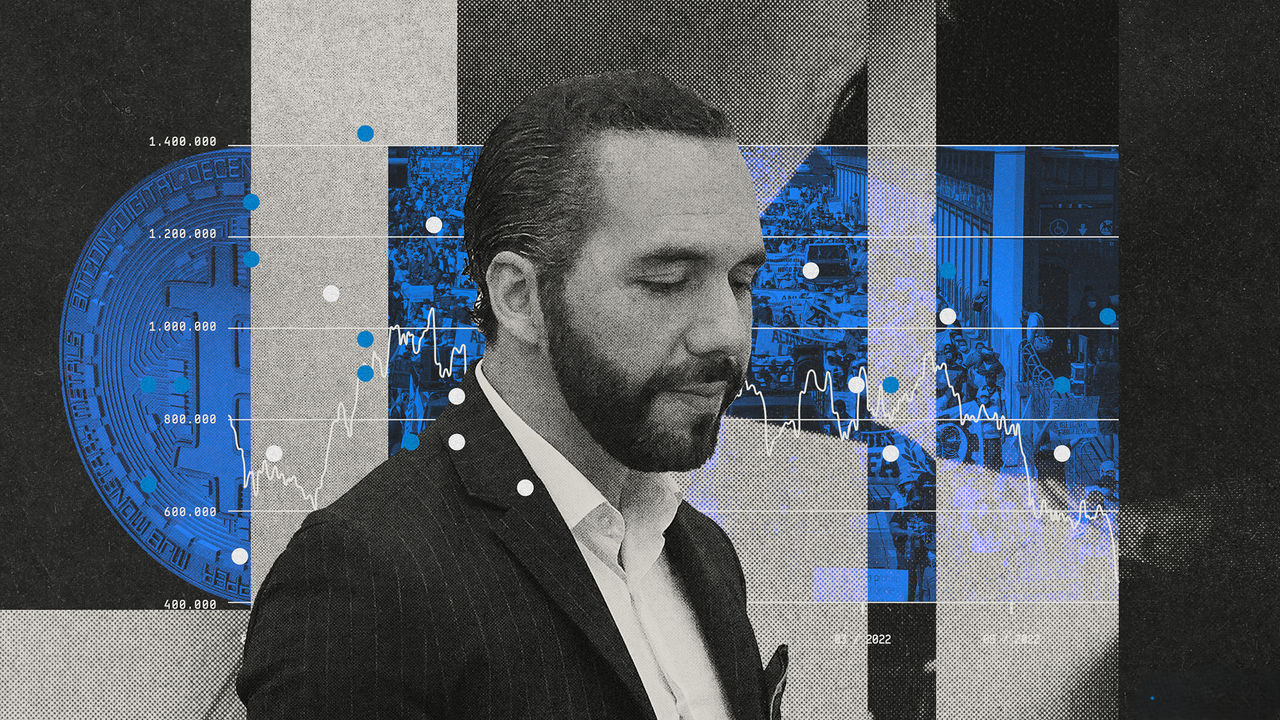Top Trends in Global Governments’ Bitcoin Holdings and Selling Strategies
Why do governments hold Bitcoin, and how do they manage it? This article dives into global governments’ Bitcoin holdings and selling strategies, highlighting the reasons behind their acquisitions and the methods they use to handle and sell these digital assets.
Key Takeaways
- Governments worldwide hold approximately 567,000 Bitcoins, significantly shaping the cryptocurrency market and highlighting digital currencies’ strategic importance in modern governance.
- Governments acquire Bitcoins primarily through criminal seizures, donations, and strategic purchases, with the U.S., China, Ukraine, and El Salvador being notable examples with diverse reasons for their holdings.
- Strategies for selling government-held Bitcoin include public auctions, gradual liquidation, and retention for future use, each influencing market liquidity and Bitcoin prices differently.
Government Bitcoin Holdings Overview

Governments worldwide collectively hold approximately 567,000 Bitcoins, a significant portion of the total Bitcoin supply. This massive accumulation underscores the growing importance of Bitcoin in national fiscal strategies. Leading the pack are:
- The U.S. government
- The Chinese government
- The Ukrainian government
- El Salvador
Each government has unique approaches and reasons for their Bitcoin ownership.
These holdings play a crucial role in shaping the cryptocurrency market, influencing Bitcoin’s price, and highlighting the strategic importance of digital currencies and crypto assets in modern governance.
U.S. Government
The U.S. government has emerged as one of the largest holders of Bitcoin, with an estimated 200,000 to 215,000 Bitcoins primarily acquired through criminal seizures. Notable incidents include the seizure of approximately 50,676 Bitcoin from James Zhong’s home in 2021, valued at over $3.36 billion at the time, and the confiscation of 69,370 Bitcoin related to the Silk Road dark web marketplace. These Bitcoins are managed by various federal agencies, including the Justice Department and the IRS.
Unlike private companies and other entities that might speculate on Bitcoin’s value, the U.S. government strategically avoids flooding the market with large amounts of cryptocurrency to prevent significant price impacts.
Chinese Government
China’s government holds around 190,000 Bitcoins, primarily seized from the PlusToken Ponzi scheme in 2019. This significant acquisition, valued at approximately $12.621 billion, has the potential to impact the market substantially. The seizure of such a large amount of Bitcoin highlights China’s proactive stance in curbing illicit activities and regulating the cryptocurrency market.
The Chinese government’s Bitcoin holdings demonstrate a strategic approach to managing digital assets, even as the country imposes stringent regulations on Bitcoin mining and trading.
Ukrainian Government
Ukraine has turned to cryptocurrencies for transactions and funding, especially amid the ongoing conflict with Russia. The country has received $225 million in cryptocurrency donations since the invasion began in 2022, with $41 million of that amount in Bitcoin. These donations have been crucial for Ukraine’s military and humanitarian efforts.
Additionally, Ukraine has been proactive in:
- Confiscating illegal assets, including a significant seizure from a former government official
- Using these assets to bolster national financial resources
- Combatting corruption.
El Salvador

El Salvador stands out as the first country to adopt Bitcoin as legal tender, accumulating over 5,700 Bitcoins through various initiatives. President Nayib Bukele’s administration has embraced Bitcoin to promote financial inclusion and economic modernization. El Salvador’s methods of acquiring Bitcoin include mining with renewable energy, selling passports, and purchasing one Bitcoin per day.
The country’s Bitcoin holdings, including bitcoin cash, valued at over a million bitcoin by February 2024, reflect a 16.93% increase from when bitcoin began their initial investment. This bold experiment in cryptocurrency adoption has placed El Salvador in the global spotlight and serves as a case study for other nations considering similar moves.
Methods of Acquisition
Governments acquire Bitcoin through three primary methods:
- Criminal seizures: often result from law enforcement activities targeting illicit activities, as seen in the U.S. Department of Justice’s confiscation of 50,676 Bitcoin from James Zhong in 2021.
- Donations: especially in times of crisis, provide another avenue for governments to receive significant amounts of Bitcoin.
- Strategic purchases: governments may also choose to buy Bitcoin strategically to diversify their reserves or for other reasons.
Strategic purchases, such as those made by El Salvador, involve buying Bitcoin as part of an investment strategy to diversify national reserves and hedge against economic uncertainties.
Criminal Seizures
Criminal seizures are a common method for governments to acquire Bitcoin. For instance, the U.S. government has accumulated a substantial amount of Bitcoin through such means, with notable seizures from the Silk Road dark web marketplace and other cybercriminal activities. Similarly, Bulgaria’s significant Bitcoin holdings were brought to light due to law enforcement activities.
Governments like Finland and the United Kingdom have also acquired Bitcoin through criminal investigations and asset confiscations. These seized Bitcoins are then managed and sometimes auctioned off to recoup funds.
Donations and Aid
Governments can receive Bitcoin through donations, particularly during crises or as part of international aid. Ukraine serves as a prime example, having received Bitcoin donations from around the world following the 2022 Russian invasion. These donations have been used to support military and humanitarian efforts, showcasing the power of digital currencies in global aid and relief efforts.
Such significant amounts of Bitcoin can play a crucial role in a nation’s ability to respond to emergencies and bolster its financial stability.
Strategic Purchases
Strategic purchases involve governments buying Bitcoin as part of an investment strategy. El Salvador set a precedent by making a strategic purchase of 400 BTC in September 2021, marking the first instance of a nation-state buying Bitcoin. Other governments are increasingly considering Bitcoin as a reserve asset to diversify their national reserves and hedge against economic uncertainties.
These strategic investments reflect a growing recognition of Bitcoin’s potential as a store of value and a hedge against inflation.
Selling Strategies and Market Impact

Governments employ various strategies to sell their Bitcoin holdings, each with distinct market impacts. Public auctions are a common method, where seized Bitcoins are sold to the highest bidder, often conducted by agencies like the U.S. Marshals Service. Gradual liquidation involves selling Bitcoin in smaller quantities over time to minimize market disruption.
Alternatively, some governments choose to retain their Bitcoin holdings, anticipating future value increases and using them as strategic reserves. Each of these strategies influences market liquidity and Bitcoin’s price, highlighting the significant role of government actions in the cryptocurrency market.
Auctioning Seized Bitcoin
Auctioning seized Bitcoin is a common practice among governments. The U.S. Marshals Service, for example, has auctioned more than 185,000 Bitcoins, worth around $8.6 billion. These auctions require participants to register and place deposits, ensuring a controlled and transparent process. The Bitcoins are sold in different series, with varying block sizes, to multiple bidders, maintaining market stability.
Similarly, Germany has also opted to sell seized Bitcoin through public auctions. These auctions help governments recoup funds and manage their digital assets effectively.
Gradual Liquidation
Gradual liquidation involves selling Bitcoin in smaller quantities over time to minimize market disruption. This strategy ensures that the market remains stable and avoids sudden price drops that can occur with large, immediate sales. The U.S. government has been known to transfer Bitcoin to exchanges, raising speculation about strategic market interventions.
By spacing out sales, governments can maintain fair market value and avoid significant impacts on Bitcoin’s price.
Retention for Future Use
Retention for future use involves:
- Holding onto Bitcoin in anticipation of its value increasing over time
- Some governments see this as a strategic investment, similar to holding foreign currency reserves
- By retaining a portion of their Bitcoin holdings, governments can avoid the potential market disruptions caused by large sales and benefit from future price appreciations.
This strategy reflects a long-term vision of Bitcoin as a valuable asset in national reserves.
Case Studies of Government Bitcoin Sales
Government Bitcoin sales provide fascinating case studies, showcasing various strategies and their market impacts. The United States Marshals Service (USMS) auctions, German government sales, and Bulgaria’s significant Bitcoin reserves offer valuable insights into how governments manage and liquidate their digital assets. Each case study highlights different approaches and outcomes, reflecting the diverse strategies employed by governments worldwide in handling their Bitcoin holdings.
United States Marshals Service Auctions

The USMS has conducted multiple auctions of seized Bitcoin, significantly impacting the market. One notable auction in 2014 saw billionaire Tim Draper purchase nearly 30,000 Bitcoins seized from the Silk Road by the U.S. Marshals Service. These auctions are meticulously planned and executed, ensuring transparency and maximizing returns for the government.
The USMS’s approach to selling seized Bitcoin has set a precedent for other governments looking to manage their digital assets.
German Government Sales
The German government has also been active in selling seized Bitcoin. In 2021, Germany moved 1,500 BTC to various crypto exchanges as part of their sales strategy. These sales are carefully coordinated to ensure minimal market disruption and maximize returns.
Germany’s proactive approach reflects a broader trend among governments to manage and liquidate seized digital assets efficiently. This strategy has helped Germany recoup funds and manage its Bitcoin holdings effectively.
Bulgaria’s Bitcoin Reserves
Bulgaria’s significant Bitcoin holdings, primarily acquired through criminal seizures, have drawn considerable attention. At one point, the Bulgarian government reportedly held over 200,000 Bitcoins, making it one of the largest government Bitcoin owners. These holdings resulted from law enforcement activities targeting cybercriminals and other illicit activities.
Bulgaria’s approach to managing these assets provides an interesting case study in how governments can handle large-scale Bitcoin seizures.
Indirect Exposure Through Financial Products

Governments and investors can also gain indirect exposure to Bitcoin through financial products like Bitcoin ETFs and blockchain technology investments. These products offer a way to benefit from Bitcoin’s market performance without directly owning the digital currency. Investing in companies holding significant amounts of Bitcoin, buying shares in Bitcoin-focused ETFs, or investing in funds that include Bitcoin or blockchain technology-related companies are some examples of gaining indirect Bitcoin exposure through the bitcoin network.
This approach provides a diversified and potentially less volatile way to participate in the cryptocurrency market.
Bitcoin ETFs
Bitcoin ETFs provide exposure to Bitcoin’s market price through both spot ETFs and futures-based ETFs. Spot ETFs directly hold the underlying asset, offering direct exposure to Bitcoin’s market price, while futures-based ETFs hold futures contracts to provide indirect exposure. Spot ETFs are generally more straightforward and have lower expenses compared to their futures-based counterparts.
They simplify investment in Bitcoin by allowing transactions through standard brokerage accounts, avoiding the necessity of managing private keys or bitcoin addresses. This makes them an attractive option for many investors looking to gain exposure to Bitcoin without the complexities of direct ownership.
Blockchain Technology Investments
Blockchain technology investments offer another way to gain exposure to the digital currency market. Governments and investors are increasingly examining these investments for their innovation potential and market disruption capabilities. By investing in companies and technologies that drive the blockchain ecosystem, stakeholders can benefit from the growth and development of the digital currency market without directly holding Bitcoin or engaging in crypto transactions.
This approach provides a diversified and potentially less volatile investment strategy.
Challenges and Risks
Despite the potential benefits, government Bitcoin holdings come with significant challenges and risks. These include:
- Volatility and market fluctuations
- Regulatory and legal issues
- Security and custody concerns
- High transaction costs
- Long processing times
- Environmental concerns
These factors add to the economic risks of Bitcoin transactions.
Additionally, Bitcoin’s decentralized nature and involvement in illicit activities pose further challenges for governments. Understanding and addressing these risks is crucial for governments looking to manage their Bitcoin holdings effectively.
Volatility and Market Fluctuations
Bitcoin’s valuation, or bitcoin price, can swing dramatically over short periods, presenting significant risks for bitcoin holders. The price of Bitcoin is highly speculative and depends largely on what the next buyer is willing to pay, leading to unpredictability and potential financial instability.
Governments holding substantial amounts of Bitcoin must navigate this volatility carefully to avoid adverse impacts on their national finances and broader economic stability. This inherent unpredictability makes managing Bitcoin reserves a complex and risky endeavor.
Regulatory and Legal Issues
Regulatory and legal issues present another layer of complexity for governments holding Bitcoin. Recent U.S. regulations require cryptocurrency exchanges to track and audit transactions for tax purposes, adding administrative burdens and compliance costs. In countries like China, citizens may convert local currency to Bitcoin and transfer it across borders to sidestep government regulation, posing significant challenges for regulatory enforcement.
These legal hurdles highlight the need for robust regulatory frameworks to manage and oversee Bitcoin transactions effectively.
Security and Custody
Security and custody concerns are paramount when managing Bitcoin holdings. Storing digital keys securely is crucial, as losing them can result in permanent loss of access to the assets. Governments often enlist private companies to help manage the storage and liquidation of seized cryptocurrencies, as seen with the U.S. Marshals Service hiring Anchorage Digital for custody services.
Ensuring the security of these digital assets is essential to prevent theft and maintain the integrity of government-held Bitcoin reserves.
Future Trends in Government Bitcoin Holdings
Future trends in government Bitcoin holdings are likely to be shaped by several factors, including:
- The growing popularity of Bitcoin spot ETFs
- The potential creation of central bank digital currencies (CBDCs)
- The increased integration of Bitcoin into global society.
The approval of spot Bitcoin ETF by the SEC in 2024 has attracted significant interest from both retail and institutional investors, facilitating broader market participation. As regulators and central banks explore the development of their own digital currencies, the role of Bitcoin and other cryptocurrencies in the global financial system, including the bitcoin market, may evolve significantly.
This ongoing integration underscores the need for adaptive and forward-thinking strategies in managing government Bitcoin holdings.
Summary
Governments around the world are increasingly recognizing the strategic value of Bitcoin, acquiring and managing significant holdings through various methods. From criminal seizures and donations to strategic purchases, these digital assets play a crucial role in national financial strategies. Selling strategies, including auctions, gradual liquidation, and retention for future use, highlight the diverse approaches to managing these assets. Despite the challenges and risks, including volatility, regulatory issues, and security concerns, the future of government Bitcoin holdings looks promising with the advent of Bitcoin spot ETFs and potential central bank digital currencies. As Bitcoin continues to integrate into global society, its role in government portfolios is set to expand, paving the way for a new era of digital asset management.
Frequently Asked Questions
How do governments acquire Bitcoin?
Governments acquire Bitcoin through criminal seizures, donations, and strategic purchases, but it is not a common practice.
Why does the U.S. government hold so much Bitcoin?
The U.S. government holds a significant amount of Bitcoin mainly from criminal seizures, particularly related to the Silk Road dark web marketplace. This has contributed to the government’s Bitcoin holdings.
What are the risks associated with government Bitcoin holdings?
The risks associated with government Bitcoin holdings include price volatility, regulatory and legal challenges, and security and custody concerns. It is important to carefully consider these factors before investing in Bitcoin.
How do governments sell their Bitcoin holdings?
Governments sell their Bitcoin holdings through public auctions, gradual liquidation, or they may choose to retain them for future use.
What future trends might impact government Bitcoin holdings?
Future trends like the growing popularity of Bitcoin spot ETFs, potential central bank digital currencies, and increased Bitcoin integration into global financial systems are likely to impact government Bitcoin holdings significantly. These trends could shape the way governments perceive and incorporate Bitcoin into their reserves and monetary policies.

